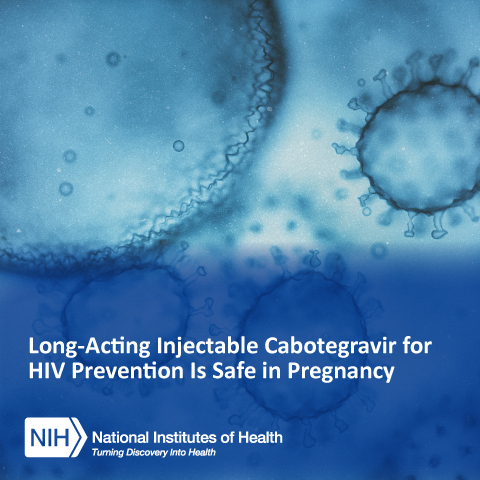
A new study sponsored by the National Institute of Allergy and Infectious Diseases (NIAID) has determined that cabotegravir, an antiretroviral medication used for HIV treatment, is safe for use before and during pregnancy. The global study analyzed the pregnancy and infant outcomes of using long-acting injectable cabotegravir (CAB-LA) in more than 300 pregnant women.
“Cisgender women experience biological changes and social dynamics that can increase their likelihood of acquiring HIV during pregnancy and the postnatal period, and we need to offer them evidence-based options when they may need them most,” said Jeanne Marrazzo, M.D., M.P.H., director of NIAID. “These data provide reassurance about CAB-LA for HIV prevention during pregnancy.”
CAB-LA is a highly effective HIV prevention method. Until now, data regarding the safety of CAB-LA during pregnancy has been limited. These findings fill an important knowledge gap that will help increase access to HIV treatment for cisgender women before, during, and after pregnancy.
Identifying gaps and priorities at the intersection of HIV and women's health is a goal for the HIV and Women Signature Program, which was established in February 2023 by NIH’s Office of AIDS Research and ORWH. The program has convened an HIV and Women Working Group to establish an intersectional, equity-informed, data-driven approach to research on HIV and women.
